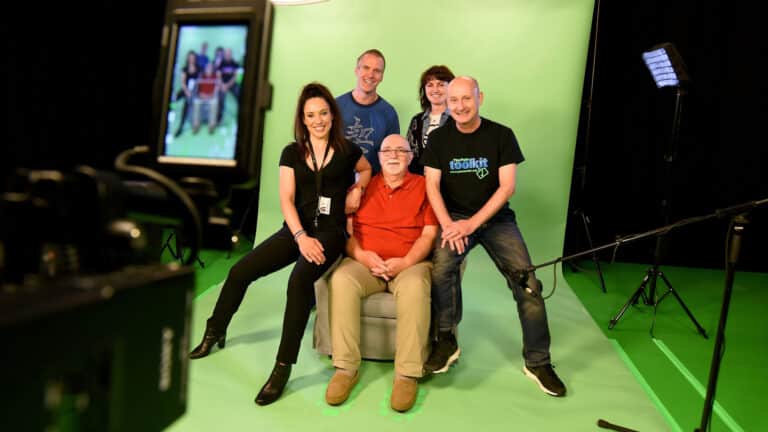A new project based in the North East is using Artificial Intelligence technology to help people manage persistent pain.
Teesside University are collaborating with pain management champion, Pete Moore and American AI specialist, StoryFile.
StoryFile’s tech has previously been used to preserve the life stories of Star Trek’s William Shatner, a NASA astronaut and Holocaust survivors.
This project will see StoryFile create an AI version of Moore, which will be fully interactive and accessible online. He will be able to have conversations, answer questions and assist people with persistent pain.
Moore will undergo an intense interview process, answering hundreds of questions about the subject.
“I’m honoured to be involved in this project. I’m just someone trying to help other people. Somewhere along the line there were people who helped me manage my persistent pain, so I think it’s my responsibility to pass it on and be that person for someone else,” he explained.
“Pain is such a wicked condition to live with, it wears you down and has an emotional toll on people. Through this project, we’re hopefully making a big difference to people living with pain because it opens a dialogue and allows people to talk through their persistent pain with the AI version of me whenever they need to.
“Teesside University is leading the way in the use of this cutting-edge technology to make a real difference within healthcare. This project is truly a game changer.”
It’s being led by Professor Denis Martin, Professor Cormac Ryan, Dr Sophie Suri and Dr Andrew Graham, from the University’s School of Health & Life Sciences.
“One of our main priorities within the centre is to help people with persistent pain. As part of this, we have been focusing on the real-world applications of using cutting-edge technology within healthcare and what this means for both the patient and the medical professional,” added Denis Martin, Professor of Rehabilitation and Director of the Centre for Rehabilitation at Teesside University.
“The AI agent will support pain management and provide a unique educational resource for our healthcare students. Talking to AI Pete will allow them to understand more about the experiences of those living with persistent pain and develop key skills and understanding in how to work with the patient and the condition.”
The collaborative project is part of the EU Interreg North-West Europe VR4Rehab project. It is supported and part-funded by the National Institute for Health and Care Research (NIHR) Applied Research Collaboration (ARC) North East and North Cumbria (NENC) and will be completed this winter.












